- Home
- Harlan Coben
Don't Let Go Page 6
Don't Let Go Read online
Page 6
There is a hush in the air. We move closer. I can make out what must have been old barracks. I try to imagine the scene--the soldiers, the vehicles, the launchpads.
"Forty-foot-high Nike missiles with nuclear warheads could have been launched from right here." Ellie shades her eyes and stares up as though she can still see them. "This spot is probably less than a hundred yards from the Carlino house over on Downing Road. The Nikes were supposed to protect New York City from a Soviet missile or airplane attack."
It's good for me to hear this refresher. "Do you know when the Nike missile program was dropped?" I ask.
"Early 1970s, I think."
I nod. "This one closed down in 1974."
"A quarter century before we were in high school."
"Right."
"So?"
"So most people, well, if you ask the old-timers, most will tell you that if these bases were secret, they were the worst-kept secret in northern New Jersey. They all knew about them. One guy said they actually put one of the missiles on a float in the July Fourth parade. I don't know if that's true or not."
We keep walking. I want to get inside the old base--I don't know why--but the rusted fence is still holding firm like an old soldier refusing to step down. We stand and look through the chain link.
"The Nike base in Livingston," Ellie says. "It's a park now. For artists. The old army barracks have been converted to artist studios. The launcher base in East Hanover was torn down to make room for a housing development. There's another base down in Sandy Hook where you can take a Cold War tour."
We lean forward. The woods are completely still. No birds coo. No leaves rustle. I can hear only the sound of my own breathing. The past does not simply die away. Whatever happened here still haunts these grounds. You can feel that sometimes--when you visit ancient ruins or old estates or when you are alone in the woods like this. The echoes quiet, fade away, but they never go completely silent.
"So what happened to this Nike base after it closed?" Ellie asks me.
"That," I say, "is what the Conspiracy Club wanted to find out."
Chapter Nine
We walk back to Ellie's car. She stops by the driver's-side door and cups my face in her hands. It's a maternal touch, something I don't recall experiencing with anyone other than Ellie, and, yes, I know how odd that sounds. She looks at me with genuine concern.
"I'm not sure what to say here, Nap."
"I'm fine."
"This may be the best thing for you."
"How's that?"
"Not to sound melodramatic, but the ghosts from that night linger in you. Maybe the truth will set them free."
I nod and close the door for her. I watch her drive away. As I head to my own car, my mobile rings. It's Reynolds.
"How did you know?" she asks.
I wait.
"On three other occasions, Officer Rex Canton stopped drunk drivers in that same spot."
I wait some more. Reynolds could have found that out in minutes. There is more to tell here, and I'm pretty sure I know what it is.
"Nap?"
She wants to play it this way, so I say, "All the DUIs were for men, correct?"
"Correct."
"And all were going through either a divorce or child custody hearing?"
"Custody hearings," Reynolds says. "All three."
"I doubt it was just those three," I say. "He probably used other spots."
"I'm going through all of Rex's DUIs. It may take some time."
I get in my car and start it up.
"How did you know?" Reynolds asks. "And don't tell me hunch or intuition."
"I didn't know for sure, but Rex stopped that car very quickly after it left that bar."
"He could have just been scouting the place."
"But we saw the tape. Even with the crappy quality, you could tell the driver didn't sway or drive erratically. So why would Rex pick on him? And by coincidence the woman in the car went to high school with Rex--it was all too much. It had to be a setup."
"I still don't get it," Reynolds says. "Did this guy fly in to execute Rex?"
"Probably."
"Did your ex help him?"
"I don't think so," I say.
"Is that love talking?"
"No, logic."
"Explain."
"You heard the bartender," I say. "She came in, had drinks with him, got him liquored up, got him in the car. She wouldn't have had to go through all those stages if she and the hit man were working together."
"Could have just been part of the act."
"Could have been," I say.
"But your way makes sense. So you think Maura was working with Rex?"
"I do."
"Doesn't mean she didn't set Rex up too."
"Right."
"But if she wasn't involved in the murder, where is she now?"
"I don't know."
"The hit man could have turned the gun on her. Could have forced her into the driver's seat. Could have made her drive him to an airport or something."
"Possible."
"And then what?"
"We're getting ahead of ourselves," I tell her. "We need to do some more legwork. I doubt the wives in these custody cases just walked up to Rex and said, 'Hey, I need to damage my husband's rep.'"
"Right, so how did they hire him?"
"My guess would be through a divorce attorney. That's our first move, Reynolds. The three women probably had the same lawyer. Find out who it is and we can ask him about Rex and Maura."
"He--or she, let's not get sexist--will claim it's work product."
"One step at a time."
"Okay," Reynolds says. "So maybe the killer was one of the targeted husbands who wanted revenge?"
That makes the most sense, but I remind her that we don't know enough yet. I don't get into the Conspiracy Club because her findings seem to cut against all that. I'm still hanging on to my silly little hope that somehow Rex's murder will circle back to you, Leo. No reason not to, I guess. Reynolds will take the lead on this DUI angle. I can still work on the Conspiracy Club angle. That means locating Hank Stroud and Beth Lashley.
But more than that, it means bringing in Augie.
I could still wait on it. There is no reason to tear open this wound again, especially if Augie is in the midst of making some strides in his personal life. But keeping something from Augie isn't my style. I wouldn't want him deciding what I could and could not take. I need to show him the same respect.
Still, Augie is Diana's father. This won't be easy.
As I hit Route 80, I press the button on my steering wheel and tell my phone to call Augie. He answers on the third ring.
"Hey, Nap." Augie is a big guy with a barrel chest. His voice is comfortingly gruff.
"You back from Hilton Head?"
"We got in late last night."
"So you're home?"
"Yeah, I'm home. What's up?"
"Can I stop by after my shift?"
He hesitates. "Yeah, sure."
"Right. So how was the trip?"
"See you later," Augie says.
He hangs up. I wonder whether he was alone as we spoke or if his new lady friend is still with him. That would be nice, I think, at the same moment I also think that it's none of my business.
--
Augie lives in a brick garden apartment on Oak Street in a development that might aptly be called Divorced Dads Mews. He moved in "temporarily" eight years ago, leaving Audrey, Diana's mother, the house where they had raised their only child. A few months later, Audrey sold the house without first informing Augie.
Audrey did that, she once told me, for Augie's sake more than hers.
When Augie answers the door, I can see his golf clubs in the foyer behind him.
"So how was Hilton Head?" I ask.
"Nice."
I point behind him. "You brought your clubs?"
"Wow, you're quite the detective."
"I don't like to brag."
> "I brought them," Augie says. "But I didn't play."
That makes me smile. "So it went well with . . . ?"
"Yvonne."
"Yvonne," I repeat, arching an eyebrow. "Great name."
He moves away so as to let me in and says, "I don't think it's going to work out between us."
My heart sinks. I've never met Yvonne, but for some reason I picture her as this confident woman with a big, throaty laugh, an easy way, fun, grateful, who liked to thread her arm through Augie's as they walked the beach near their hotel. I feel a loss for someone I never met.
I look at him. He shrugs.
"There'll be another," he says.
"Plenty more fish in the sea," I agree.
You'd expect the apartment interior to be on the generic-read-dumpy side, but it's not. Augie loves going to local art fairs and buying paintings. He rotates them, never keeping them in the same spot for more than a month or two. The oak bookshelves with glass fronts are jammed with books. Augie is the most voracious reader I know. He's divided the books into two simple categories--fiction and nonfiction--but he hasn't alphabetized them by author or anything like that.
I take a seat.
"You off duty?" Augie asks.
"I am. You?"
"Same."
Augie is still captain of the Westbridge Police Department. He retires in a year. I became a cop because of what happened to you, Leo, but I'm not sure it would have happened without Augie's guidance. I sit in the same plush chair I always take when I'm here. He uses the trophy from the high school state championship football team--the one I played on, the one he coached--as a bookend. Other than that there is nothing personal in this room--no photographs, no certificates, no awards, nothing like that.
He hands me a bottle of wine. It's Chateau Haut-Bailly 2009. Retails for about two hundred dollars.
"Nice," I say.
"Open it."
"You should save it for a special occasion."
Augie takes the bottle from my hand and jams the corkscrew into the top. "Is that what your father would tell us?"
I smile. "No."
My great-grandfather, Dad often told us, saved his best wines for special occasions. He was killed when the Nazis invaded Paris. The Nazis ended up drinking his wine. Lesson: You never wait. When I was growing up, we used only the good plates. We used the best linens. We drank out of Waterford crystal. When my father died, his wine cellar was nearly empty.
"Your dad used fancier words," Augie tells me. "I prefer a line from Groucho Marx."
"That being?"
"'I shall drink no wine before its time. Okay, it's time.'"
Augie pours the wine into one glass, then the other. He hands one to me. We clink glasses. I twirl the wine a bit and smell. Nothing too showy.
I get a gorgeous nose of blackberry, plum, creme de cassis, and--go with me on this--lead pencil shavings. I take a sip--succulent, ripe fruit, fresh, lively, you get the deal. The finish lasts a solid minute. Spectacular.
Augie waits for my reaction. My nod tells all. We both look to the spot where Dad would be sitting if he were with us. The longing vibrates deep in my chest. He would have loved this moment. He'd have savored both this wine and this company.
Dad was the pure definition of what the French label joie de vivre, which roughly translated means "exuberant enjoyment of life." I'm not sure about that definition. My own experience is that the French love to feel. They take in the full experience of great loves and great tragedies without backing down or crouching into some sort of defensive stance. If life is going to punch them in the face, they stick their chins out and savor the moment. That is living life to the fullest.
Dad was like that.
And that's why I would be a great disappointment to him, Leo.
So maybe in the important things, I'm not a Francophile at all.
"So what's on your mind, Nap?"
I start with Rex's murder and then hit him with Maura's fingerprints. Augie drinks his wine with a little too much care. I finish the story.
I wait. He waits. Cops know how to wait.
Finally, I say, "So what do you make of it?"
Augie rises from his seat. "Not my case. Ergo not my job to make something out of it. But at least you know now."
"Know what?"
"Something about Maura."
"Not much," I say.
"No, not much."
I say nothing, take a sip.
"Let me take a wild guess," Augie says to me. "Somehow you think this murder has something to do with Diana and Leo."
"I don't know if I'm willing to go that far yet," I say.
Augie sighs. "What have you got?"
"Rex knew Leo."
"He probably knew Diana too. You were all in the same class, right? It's not that big a town."
"There's more to it."
I reach into my bag and pull out the yearbook. Augie takes it from my hand.
"Pink Post-it notes?"
"Ellie," I say.
"Should have known. So why are you showing me this?"
As I explain about the pins and the Conspiracy Club, an amused smile comes to his lips. When I finish he says, "So what's your theory, Nap?"
I say nothing. His smile grows.
"Do you think that this Conspiracy Club uncovered a great big scary secret about a secret military base?" he asks. He starts waving his fingers around like he's casting a spell. "A secret so terrible that, what, Diana and Leo had to be silenced? Is that how your theory goes, Nap?"
I take another sip of wine. He starts to pace, flipping to the pages marked off with the Post-it notes.
"And now, fifteen years later, Rex for some odd reason needs to be silenced too. Odd he didn't have to be silenced back then, but whatever. Suddenly, secret agents are dispatched to take him out."
Augie stops and stares at me.
"Are you enjoying this?" I ask.
"A little, I guess."
He opens up to another page with a pink Post-it note. "Beth Lashley. Is she dead too?"
"No, I don't think so. I haven't found anything on her yet."
Augie frantically flips to another page. "Oh, and Hank Stroud. Well, we know he's still in town. Not all there, I admit, but the bogeymen haven't taken him out yet."
He flips the page once again, but this time he freezes. The room is silent now. I look at his eyes and I wonder whether coming here was wise. I can't see the exact page he's looking at, but I can tell that it's a page toward the back. So I know. His expression doesn't change, but everything else does. Pain creases his face. There is a small shake in his hand now. I want to say something comforting, but I know that this is one of the moments when words would be like an appendix--superfluous or harmful.
So I shut up.
I wait as Augie stares at the photograph of his seventeen-year-old daughter, who never came home that night. When he finally speaks again, it's like something heavy is sitting on his chest.
"They were just kids, Nap."
I can feel my grip on the glass tighten.
"Stupid, inexperienced kids. They drank too much. They mixed pills with the alcohol. It was dark. It was late. Were they just standing on the tracks? Were they running down them, laughing and high, and never knew? Were they playing chicken with the train, trying to jump across the tracks, the same game that killed Jimmy Riccio back in 1973? I don't know, Nap. I wish I did. I wish I knew exactly what happened. I want to know if Diana suffered--or was it quick? I want to know if she turned at the last second and knew that her life was about to end or if she was oblivious when she died. See, my one job, my only job, was to protect her, and I let her go out that night, and so I wonder if she was scared that night. I wonder if she knew that she was going to die--and if she did, did she call out my name? Did she yell for her father? Did she hope that somehow maybe I'd be able to save her?"
I don't move. I can't move.
"You're going to look into this, aren't you?"
I manage to nod. T
hen I'm able to say, "Yeah."
He hands me the yearbook and starts out of the room. "Maybe you should do it on your own."
Chapter Ten
So I start to look into it on my own.
I call Essex Pines Medical Center and get one of Hank's doctors on the line surprisingly fast. He says, "You know about HIPAA and patient confidentiality, right?"
"Right."
"So I can't tell you anything about his condition."
"I just want to talk to him," I say.
"He's an outpatient."
"I'm aware of that."
"Then you're aware that means he doesn't live here."
Everyone's a wiseass. "Doctor . . . I'm sorry I missed your name."
"Bauer. Why?"
"Just so I know who's jerking me around."
Silence.
"I'm a police officer and I'm trying to find Hank. Do you have any idea where he might be?"
"None."
"Do you have an address for him?"
"He's only given us a PO box in Westbridge. And before you ask, there are rules that prevent me from telling you that Hank usually comes to Essex Pines three to five days a week, but he hasn't been here in over two weeks."
Two weeks. Dr. Bauer hangs up. I let him. I have another idea.
--
I stand by the basketball courts located off the oval in front of Westbridge High School and listen to the sweet echo of a ball against asphalt at twilight. What is in front of me is a thing of beauty called "pickup basketball." There are no uniforms, no coaches, no set teams, no referees. Sometimes the white line is out-of-bounds on the baselines, sometimes it's the chain-link fence. You start the game with a check at the top of the key. Winners stay on, you call your own fouls. Some of these people are friends, some strangers. Some have important jobs, some are barely getting by. Tall, short, fat, thin, all races, creeds, religions. One guy is wearing a turban. None of that matters here. It's all about how you ball. Some trash talk, some stay quiet. You know about planned playdates. You know about adult leagues. This--pickup basketball--is the wonderfully anarchistic and archaic opposite.
I hear the grunts, the guys calling out picks, the staccato shuffling of sneakers. Ten guys are playing--five on five. There are three guys on the sidelines waiting. A fourth approaches and asks, "You got next?" The guys nod.
I recognize about half the players. Some I know from high school. Some are neighbors. The guy who runs the town lacrosse program is out there. Many of these guys work in the financial community, but I also spot two high school teachers.

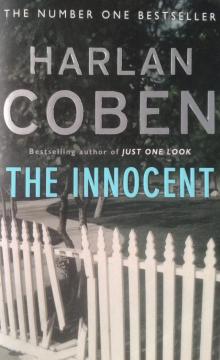 The Innocent
The Innocent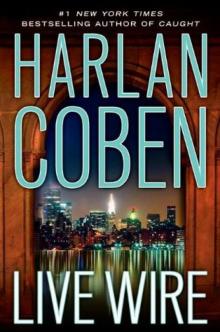 Live Wire
Live Wire Play Dead
Play Dead Drop Shot
Drop Shot Seconds Away
Seconds Away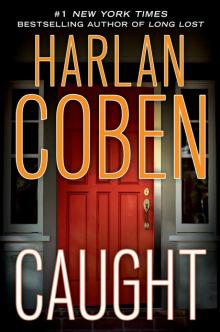 Caught
Caught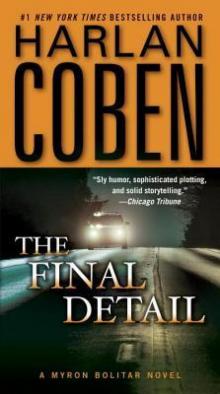 The Final Detail
The Final Detail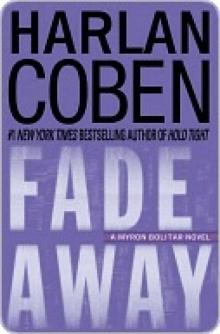 Fade Away
Fade Away Home
Home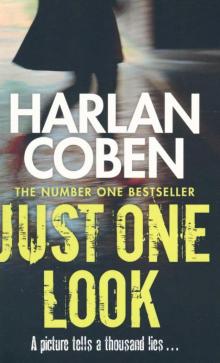 Just One Look
Just One Look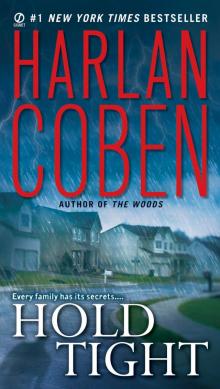 Hold Tight
Hold Tight Fool Me Once
Fool Me Once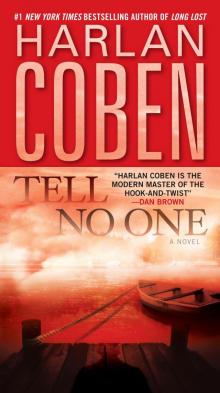 Tell No One
Tell No One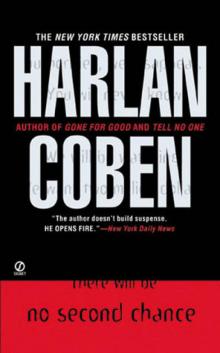 No Second Chance
No Second Chance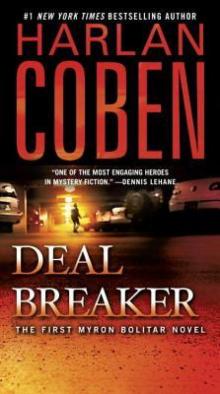 Deal Breaker
Deal Breaker Long Lost
Long Lost One False Move
One False Move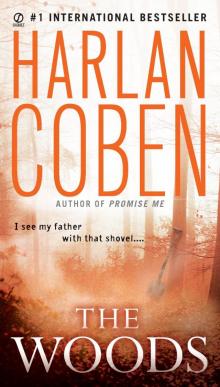 The Woods
The Woods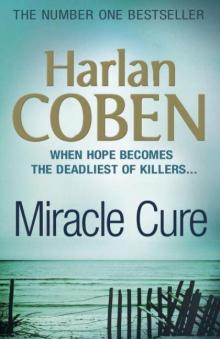 Miracle Cure
Miracle Cure Found
Found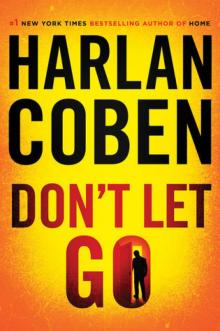 Don't Let Go
Don't Let Go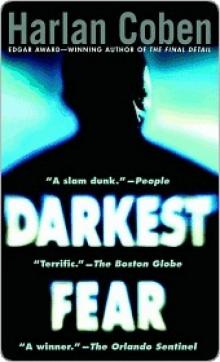 Darkest Fear
Darkest Fear The Stranger
The Stranger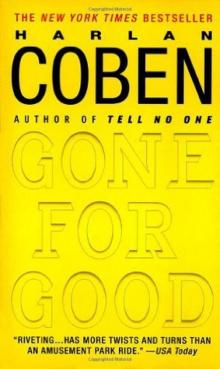 Gone for Good
Gone for Good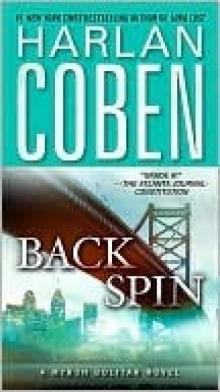 Back Spin
Back Spin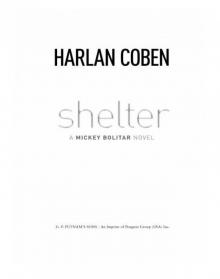 Shelter
Shelter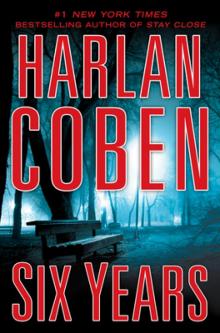 Six Years
Six Years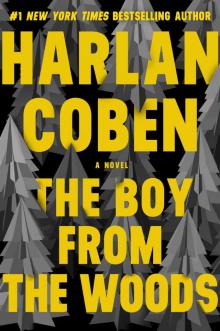 The Boy from the Woods
The Boy from the Woods Missing You
Missing You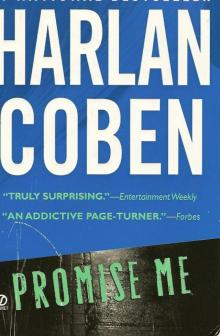 Promise Me mb-8
Promise Me mb-8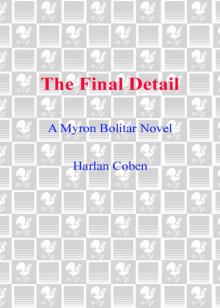 The Final Detail: A Myron Bolitar Novel
The Final Detail: A Myron Bolitar Novel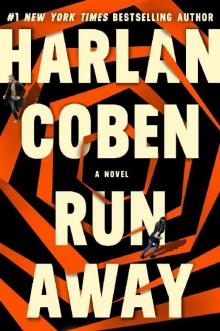 Run Away
Run Away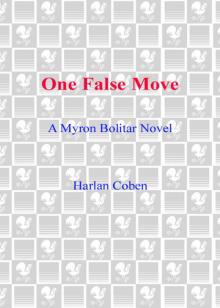 One False Move: A Myron Bolitar Novel
One False Move: A Myron Bolitar Novel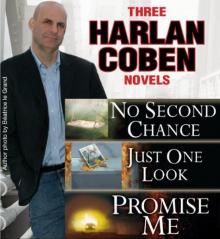 Three Harlan Coben Novels
Three Harlan Coben Novels the Woods (2007)
the Woods (2007) Tell No One (2001)
Tell No One (2001) the Innocent (2005)
the Innocent (2005)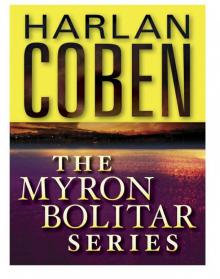 The Myron Bolitar Series 7-Book Bundle
The Myron Bolitar Series 7-Book Bundle Gone for Good (2002)
Gone for Good (2002) Caught (2010)
Caught (2010) Hold Tight (2008)
Hold Tight (2008)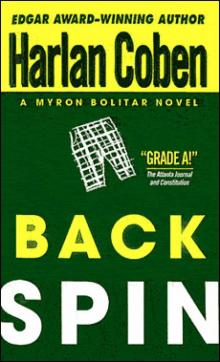 04 - Back Spin
04 - Back Spin Miracle Cure (1991)
Miracle Cure (1991) Harlan Coben 3 Novel Collection
Harlan Coben 3 Novel Collection Just One Look (2004)
Just One Look (2004)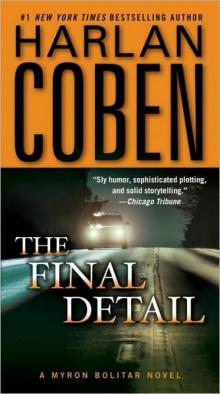 The Final Detail mb-6
The Final Detail mb-6 Play Dead (2010)
Play Dead (2010)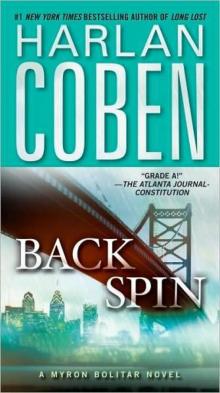 Back Spin mb-4
Back Spin mb-4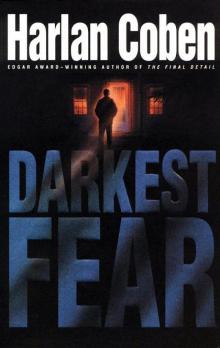 Darkest Fear mb-7
Darkest Fear mb-7